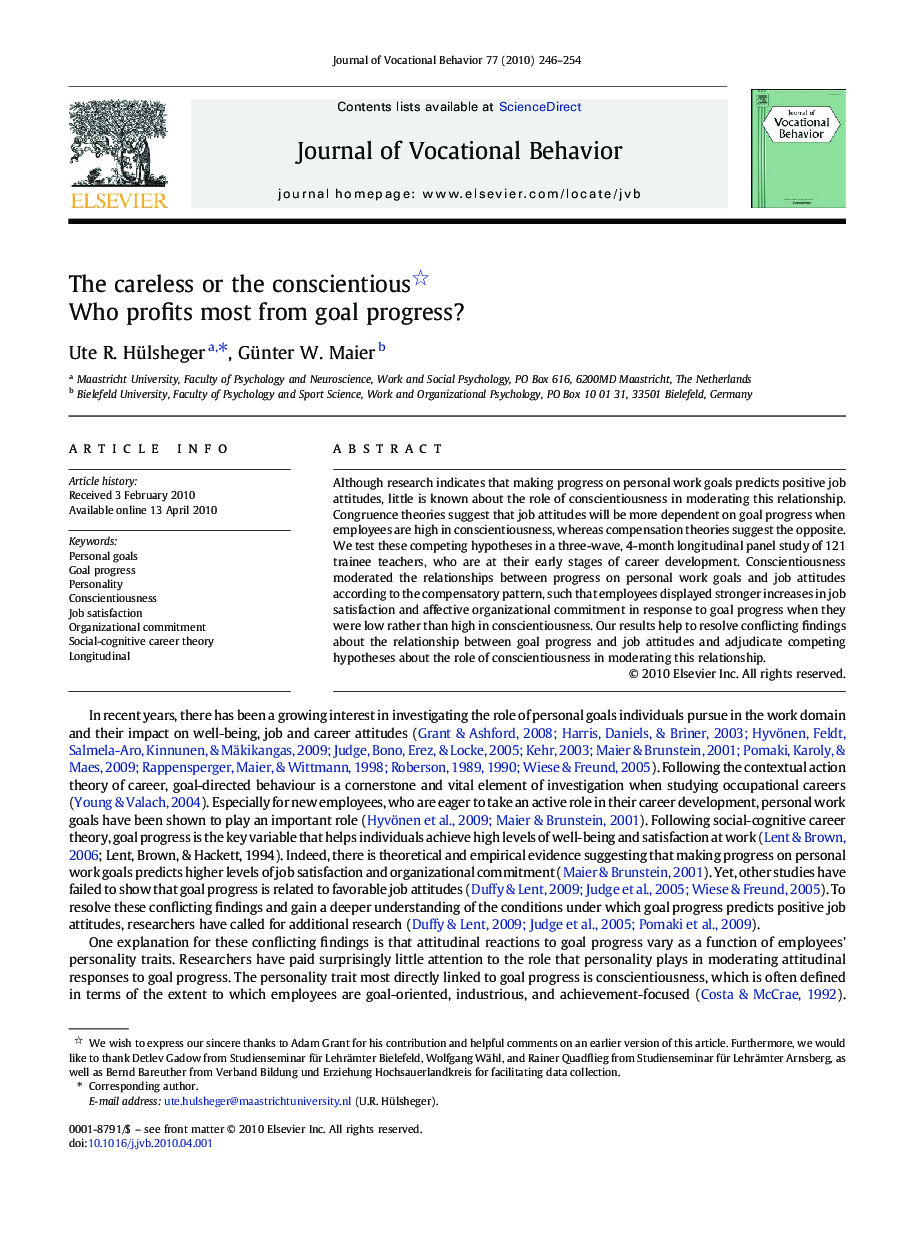| Article ID | Journal | Published Year | Pages | File Type |
|---|---|---|---|---|
| 887250 | Journal of Vocational Behavior | 2010 | 9 Pages |
Although research indicates that making progress on personal work goals predicts positive job attitudes, little is known about the role of conscientiousness in moderating this relationship. Congruence theories suggest that job attitudes will be more dependent on goal progress when employees are high in conscientiousness, whereas compensation theories suggest the opposite. We test these competing hypotheses in a three-wave, 4-month longitudinal panel study of 121 trainee teachers, who are at their early stages of career development. Conscientiousness moderated the relationships between progress on personal work goals and job attitudes according to the compensatory pattern, such that employees displayed stronger increases in job satisfaction and affective organizational commitment in response to goal progress when they were low rather than high in conscientiousness. Our results help to resolve conflicting findings about the relationship between goal progress and job attitudes and adjudicate competing hypotheses about the role of conscientiousness in moderating this relationship.
